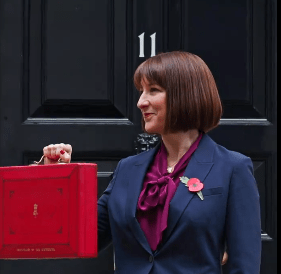Moving to the UAE is a big change. Living in the UAE, or even the wider GCC, is not quite like life elsewhere.
It is not uncommon for expats for make a few financial mistakes but proper planning, some research, and the right advice will make for a better experience, and a better life generally.
This article has a list of the most common errors and while some may seem obvious, they are all made regularly. Knowledge is power so have a read and make sure you aren’t making mistakes that you could easily avoid.
 This is me, windswept on Christmas Day 2006. Burj al Arab in the distance. Long before Kite Beach was developed.
This is me, windswept on Christmas Day 2006. Burj al Arab in the distance. Long before Kite Beach was developed.I have been advising expats on planning their financial lives in the UAE for over 18 years, and previously worked in the UK, a highly regulated environment.
You need to take the right steps and avoid the wrong ones, so come and see me for a friendly chat so we can sort out your financial planning and answer all your questions on life in the UAE.
I offer a specific service for people who are planning on moving to the UAE, or have recently moved, covering all your queries about tax, banking, inheritance, wills, what to do about property, and anything else you want to know about life in the UAE.
As well as the technical topics, you can pick my brains for information gained over 19 years in the UAE.
This is a fee-based service but can be just a one-hour chat, or a full written report depending on what you want or need. Most meetings are over Zoom for maximum convenience.
Here are 10 of the top money mistakes so you can avoid them.
- Lack of research before moving
It is important to remember that for most of us that the UAE isn’t just like home with added sun and sand. It may all appear rather Western, with modern shopping malls, fancy five-star hotels, and all mod cons but it is worth being mindful that the laws and practices here in the UAE can be very different to back home.
Never assume that things work as they do in your home country and you should be sensitive to cultural and legal differences. The UAE offers huge amounts of freedom to all residents and visitors, but don’t forget that this a Muslim country and that should be respected.
Getting the facts before you move can mean the difference between a good start to a new life, and costly mistakes.
For Brits or anyone with UK connections, you can find loads of useful information by joining this Facebook group. Facebook – British Expats Dubai
- Living beyond your means
With the almost year-round sun, living in the UAE can feel a bit like being on holiday all the time, especially during the first year.
 It can be tempting to live in a large villa or apartment in a smart area, to drive a brand-new top of the range car, shop in smart malls, and go to every concert whilst brunching each weekend but these things are expensive and not realistically affordable for most people. At least not all the time.
It can be tempting to live in a large villa or apartment in a smart area, to drive a brand-new top of the range car, shop in smart malls, and go to every concert whilst brunching each weekend but these things are expensive and not realistically affordable for most people. At least not all the time.
It is far better to avoid the bad habit of overspending from outset, especially when the consequences of unpaid debt are serious. In recent years, the penalties for non-payment of debt have eased but you can be prevented from leaving or re-entering the country, or worse.
Of course, you want to have fun but it is best to work out a monthly budget and allocate money to the luxuries once you have paid for the necessities.
This way you can have a good time without the guilt, or any negative repercussions.
- Not planning for bad times
Life can appear to be wonderful but it only takes one thing to go wrong for things to collapse around your ears. That can be an unexpected redundancy, an illness, or a major problem with family back home.
With no welfare system in the UAE and with the right to reside here mainly linked to employment, it is especially important that everyone makes financial provision for themselves and their families.
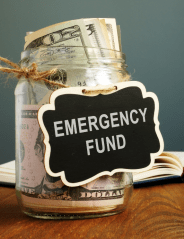 The first step is to build up an emergency cash fund. Ideally this should be sufficient to cover at least three to six months’ outgoings.
The first step is to build up an emergency cash fund. Ideally this should be sufficient to cover at least three to six months’ outgoings.
As UAE bank accounts are frozen when a job ends, or in the event of death, it is best that these monies are kept outside of the country. An offshore bank account is ideal and has multiple benefits..
Anyone with dependents also needs to have adequate life insurance, just in case the worst happens. If you arranged this in a home country you need to check that this is still valid, as well as notifying the insurance compan of where you are living. Be aware that many critical illness policies will not cover you if not UK resident.
Take a look at this article for important information. How to plan for the worst when living in the UAE
- Not reading employment contracts properly
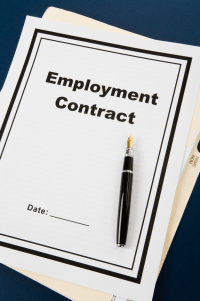 It’s great to get excited about a new job offer, the prospect of an increased salary, and the promise of endless sunshine but it is also easy to forget to read the small print of a contract of employment.
It’s great to get excited about a new job offer, the prospect of an increased salary, and the promise of endless sunshine but it is also easy to forget to read the small print of a contract of employment.
Be aware that it is illegal to work in the UAE without a residency visa and a work permit. An employer needs to have applied for these at least by the time someone starts work. Clarified HERE
If you are sponsored by a spouse or parent, or have a golden or other type of visa, you still require a work permit from your employer.
Avoid any company that says you have to pass a probation period before they will arrnage a visa and/or work permit. That’s illegal, as is working on a tourist visa, and both you and the employer are breaking the law and can be subject to substantial fines. You will have no protection in law in this situation.
The labour laws across the UAE were amended with effect from February 2022 and gave employees more flexibility to change job. While all contracts will state a set term, there are no longer any penalties for resigning part way through.
Note there are requirements to give notice, from both the employee or the employer.
All of the costs for employing someone are the responsibility of the employer. The company must pay for residency visa, work permits and Identity cards. They are not permitted to pass this cost on to individuals.
Expat employees receive an end of service gratuity after having been with a company for at least a full year (unless employed in DIFC which has its own scheme, DEWS) but this is based only on your basic salary. If your income includes benefits such as a housing allowance look out for how the total is split as you can end up losing out.
A trade licence is required to undertake any freelance work or to set up even a small business. Substantial penalties apply for those who work illegally on any basis.
- Breaking financial ties with a home country
When leaving your home country, it’s easy to think that what you leave behind doesn’t matter or that you can just pick things up again at some point in the future but that is not always the case.
If you close personal bank accounts it can be difficult to open a new one in many home countries without proof of address going back at least a year and that can be a real problem on your return.
Even when you are abroad there will be times when an account will be useful so it is best to keep one going, with a small balance in it at least.
In many countries maintaining a credit record is important as that dictates the banking, loan and mortgage options following return. If you leave behind a bad debt, it is likely to catch up with you one day.
Returning to a home country, or another country, may have tax implications too but professional advice on the right steps can minimise these.
If moving to the UK, see this link: Moving from the UAE to the UK? You need a financial exit plan.
- Assuming inheritance laws are the same as a home country
Sharia law is the law of the land in the UAE and applies to all assets in the country. This is the case no matter where you are from so it will apply to UAE bank accounts, property, cars or other items.
The personal status laws were changed in October 2020, all explained in THIS ARTICLE but bank accounts are still frozen on death and all physical property is still subject to Sharia distribution if an owner dies. This is also the case with all jointly owned assets.
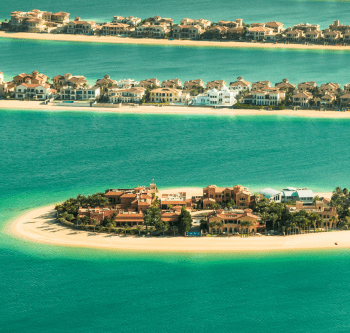 If you have bought property in the UAE, it is essential that you have a property-written and registered local will in place.
If you have bought property in the UAE, it is essential that you have a property-written and registered local will in place.
If you don’t have a UAE will, Sharia distribution will apply to all property. Your husband or wife will only inherit a small percentage of the property and then be left with a complicated situation that can be both expensive and stressful to manage.
ALL expats, including Muslims, can have a local will following a change in the law in 2023. That inlcudes other GCC nationals but not Emiratis.
A will written in a home country is not recognised in the UAE and you may need to make other arrangements to protect yourself and your family, to have both permanent and local guardians for minor children.
Finding this out when a loved one has died can be a shock, as well as cause major financial and legal difficulties, so planning ahead is both the right and the kind thing to do.
See these articles for more information on wills and guardianship and get in touch to get your property and family protected. Arranging wills for the UAE, and also the UK, is a simpler process than you might think and we make it as easy as possible at competitive cost.
Wills – why you need one and how to arrange it
UAE wills for Muslim expats now available
- Shopping as if in a home country
 It’s easy to go to your nearest large supermarket and buy familiar brands but this can lead to grocery bills far higher than they need to be.
It’s easy to go to your nearest large supermarket and buy familiar brands but this can lead to grocery bills far higher than they need to be.
Brands that have been imported from the West can be expensive and there are often local or regional versions of the same products at lower prices.
The options have greatly increased in recent years with a bigger emphasis on food security and regional produce, most of which has a lower cost. There are even farmer’s markets in our winter months.
It’s almost impossible to get everything you want from one place, without paying over the odds, but with myriad options, both in store and online, a little smart planning means you can get all you want and at reasonable prices.
Significant sums can be saved over a year by going to different stores or online services and working out which offer the best value for money, especially when it comes to fruit and vegetables and the boring household basics.
The same applies for other items, furniture, clothing and so on. Check out local selling groups for lightly used furniture and appliances, and the range of online retailers.
- Not saving for the future
Surveys show that two-thirds of expats leave the UAE poorer than when they arrived and 40% are saving nothing at all. Of those who do save, a third are only saving 5% of their income.
 You really don’t want to be these people, so get in control of your finances and start looking after your own future. It is far too easy to have good intentions but to put off taking action.
You really don’t want to be these people, so get in control of your finances and start looking after your own future. It is far too easy to have good intentions but to put off taking action.
The majority of expats have probably moved here for a better life and also for a higher income, and it is important to you don’t put off saving for too long. Intending to save and invest for your future is good but you also have to actually take action.
The End of Service Gratuity payments can build up over time but it is not even close to an adequate replacement for proper retirement planning.
As life expectancy increases, it becomes ever more important that we provide for ourselves, an dour financial futures. Money = choices.
Simple maths and logic tell us that the earlier we start the better as compound growth makes a difference. We want time on our side but that does not mean that you need to commit to a restrictive 20-year savings plan. In fact, if anyone even suggests such a thing – run away!
There are various flexible and cost-effective options for GCC residents. Get in touch for real advice, tailored to your specific situation, so you can have a comfortable financial future.
You also need to be aware of where your investment is actually based. if it is in the UAE, there could be issues with Sharia law. If in the USA you could easily fall foul of US inheritance taxes that kick in from $60,000 no matter where you live. Not all offshore jurisdictions are the same and some will present probate issues.
You can see that expert advice matters.
9. Don’t bank on it
Unsecured credit, by way of personal loans and credit cards is easily available but the consequences of defaulting are severe. There are times when people need to borrow money, and credit cards can be a useful tool, but building up high levels of debt is never a good idea, especially when people do it to support a lifestyle.
There are times when you may need a loan for a large purchase such as an essential car, but otherwise you really should save up for holidays and non-essential items.
The rates of interest on credit cards are very high so the smart thing is to repay them in full each month.
Banking and financial scams are far too common so be very wary of giving out your personal details. For example, your bank will not ask you for an OTP (one time password) and check all links very carefully.
More tips in this link: Beware banking fraud. How to beat the scammers
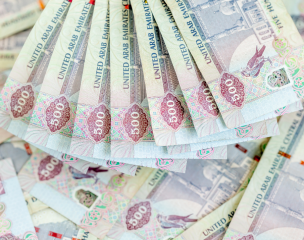 Most of us transfer between currencies but please don’t use your own bank to do this as you will not get good value. Significant savings can be made by using the right third-party currency broker but you must use one with the highest levels of legal security.
Most of us transfer between currencies but please don’t use your own bank to do this as you will not get good value. Significant savings can be made by using the right third-party currency broker but you must use one with the highest levels of legal security.
See HERE for information how to get the best rates.
- Assuming that being an expat means no tax to pay in a home country
“In this world nothing can be said to be certain, except death and taxes” said Benjamin Franklin in 1789 and it is still true today. Leaving a home country doesn’t necessarily mean you are exempt from taxes or obligations.
Usually, income arising in a country remains subject to tax, even if you aren’t living there, and you may need to submit an annual return to the relevant tax authorities.
Leaving, or returning, part way through a tax year can lead to complications with overseas income being subject to tax, so professional advice can be very useful to avoid making a costly error on timing.
It is also not true to say we don’t pay tax in the UAE. We don’t pay personal income tax (yet!) but there are property taxes, corporate taxes, hotel fees, tax on specific goods, VAT, and assorted fees that are taxes by another name.
As mentioned earlier, your investments could lead to tax charges if not set up in the right way.
In summary

A little thought and planning can go a long way in preventing mistakes being made; mistakes that can be costly. I am not saying don’t have fun while living in the UAE, not at all, but planning for your future and financially protecting your family really matters.
This article is by no means exhaustive and there are always other issues to address but it will give you some guidance on what not to do, as well as what you should. And how to do it the right way.
Life in the UAE can be great and I want to help you keep it that way.
Genuine financial planning is an important topic but it doesn’t have to be painful. With me you get the real advice that you need, in a friendly and relaxed manner.
I write articles such as this one as part of the holistic personal financial planning service and that I provide to GCC residents, and the general consumer, financial and legal information that I provide in The National newspaper, across other UAE/GCC media, on UAE Radio, and in the popular Facebook group British Expats Dubai.
To arrange a meeting to discuss any aspect of your personal financial planning, please email me at keren@holbornassets.com
Please take a look at the other useful articles on this website.
Update May 2025
Useful links:
The multiple benefits of an offshore bank account
UAE personal status laws – facts
Where there’s a will, there’s a way to protect your family
UAE wills for Muslim expats
15 reasons why you need a will
A short story about protecting your family
Currency transfers. How to get the best rates with full security
Facebook – British Expats Dubai
NOTE. All information on this website is mine, my intellectual property, and must not be copied or reused without permission. ©Keren Bobker
